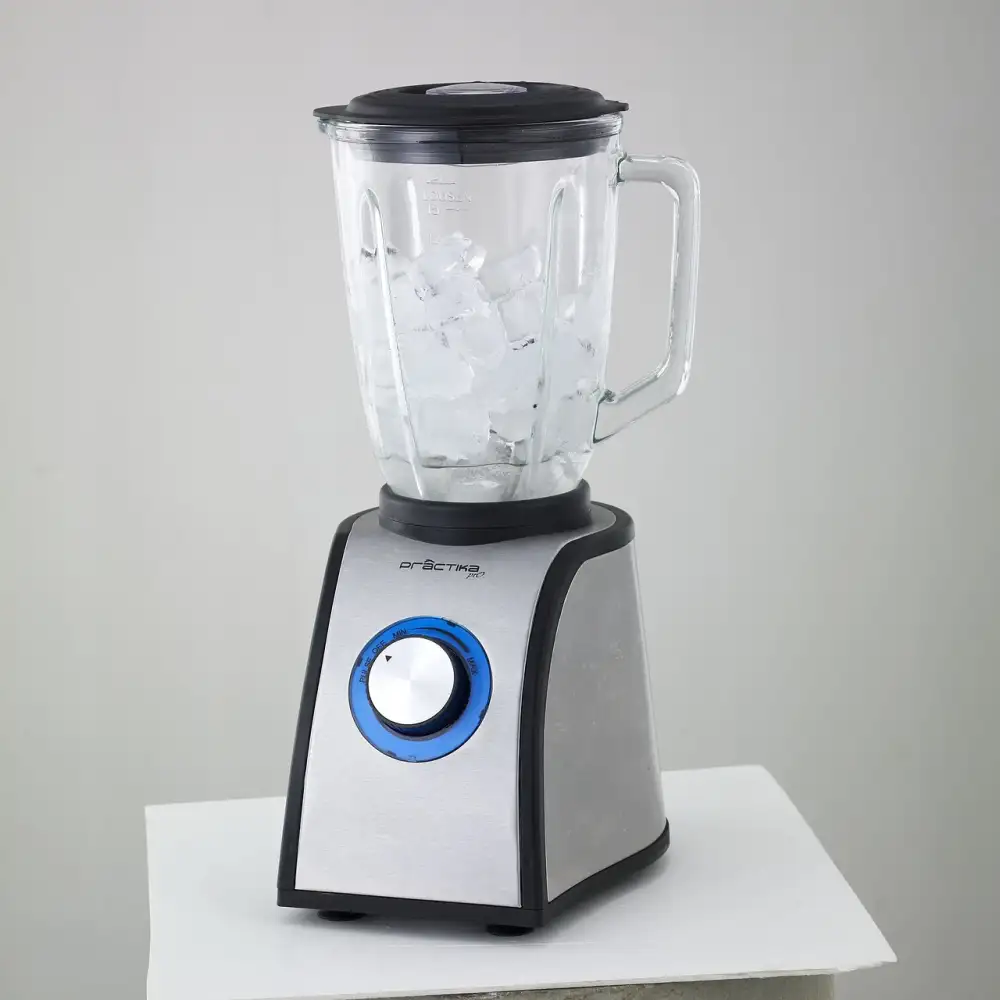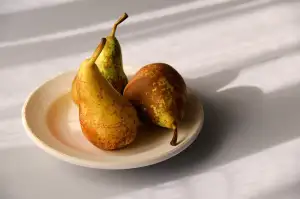The Ultimate Guide to Choosing the Best Juicer for Your Home: Unleash Your Culinary Creativity with the Perfect Juicing Companion

- Factors to consider when choosing a juicer:
- Types of juicers available (centrifugal, masticating, citrus)
- Juicing capacity and speed
- Ease of use and cleaning
- Noise level
- Durability and warranty
- Top juicers in the market:
- Juicer A: Highlight key features and benefits
- Juicer B: Highlight key features and benefits
- Juicer C: Highlight key features and benefits
- Comparison of the top juicers:
- Performance and juice extraction efficiency
- Versatility in handling different fruits and vegetables
- Price range and value for money
- Customer reviews and ratings
Juicing has become increasingly popular as people strive to adopt healthier lifestyles. It offers a convenient way to consume a variety of fruits and vegetables, providing essential nutrients, vitamins, and minerals in a concentrated form. Juicing allows for easy absorption of these nutrients, promoting better digestion and boosting the immune system. Regular consumption of fresh juices can also aid in weight loss, detoxification, and increased energy levels. Incorporating juicing into your daily routine is an excellent way to unleash your culinary creativity while reaping the numerous health benefits it offers.
Factors to consider when choosing a juicer:
When choosing a juicer for your home, there are several factors to consider. Firstly, you need to decide on the type of juicer that suits your needs. There are three main types: centrifugal, masticating, and citrus juicers. Centrifugal juicers are fast but may not extract as much juice as masticating ones. Masticating juicers are slower but yield more juice and retain more nutrients. Citrus juicers are specifically designed for citrus fruits.
Next, consider the juicing capacity and speed of the machine. If you plan to juice large quantities at once, opt for a juicer with a larger feed chute and higher speed. However, keep in mind that high-speed juicers may generate more heat and potentially degrade the nutritional value of the juice.
Ease of use and cleaning is another crucial factor. Look for a juicer with simple controls and removable parts that are dishwasher safe. A complicated assembly process or difficult-to-clean parts can discourage regular use.
Noise level is also important, especially if you have noise-sensitive family members or live in an apartment building where loud appliances can be disruptive. Some masticating juicers operate quietly compared to their centrifugal counterparts.
Durability and warranty should not be overlooked either. Investing in a sturdy machine with a long warranty ensures that your juicer will last for years without frequent breakdowns or malfunctions.
Considering these factors will help you find the perfect juicing companion that meets your specific needs and preferences.
Types of juicers available (centrifugal, masticating, citrus)
When it comes to choosing a juicer, it's important to understand the different types available on the market. The three main types of juicers are centrifugal, masticating, and citrus juicers.
Centrifugal juicers are the most common and widely available. They work by using a fast-spinning blade that extracts juice from fruits and vegetables through centrifugal force. These juicers are known for their high-speed performance and ability to quickly produce juice. However, they may not be as efficient in extracting juice from leafy greens or wheatgrass.
Masticating juicers, also known as cold press or slow juicers, use a slow grinding and chewing motion to extract juice. This method helps retain more nutrients and enzymes in the juice while minimizing heat buildup. Masticating juicers are great for extracting juice from leafy greens, wheatgrass, and even nuts or soybeans.
Citrus juicers are specifically designed for extracting juice from citrus fruits like oranges, lemons, and grapefruits. They typically come with a cone-shaped reamer that presses down on the fruit to extract the juice.
Each type of juicer has its own advantages and disadvantages depending on your specific needs and preferences. Consider factors such as the type of produce you plan to juice most often and how much time you're willing to spend on cleaning before making your decision.
Juicing capacity and speed
When choosing a juicer, it is important to consider its juicing capacity and speed. The juicing capacity refers to the amount of juice that the juicer can extract in one go. If you plan on making large batches of juice at once, you will need a juicer with a higher juicing capacity. On the other hand, if you only need small amounts of juice at a time, a juicer with a smaller capacity may be sufficient.
The speed of the juicer also plays a role in determining its efficiency. Centrifugal juicers tend to have faster speeds, which means they can extract juice quickly. This is ideal for those who are always on the go and need their juice ready in no time. Masticating juicers, on the other hand, have slower speeds but are known for their ability to extract more juice from fruits and vegetables. They are perfect for those who prioritize getting maximum yield from their produce.
Consider your needs and lifestyle when evaluating the juicing capacity and speed of different models.
Ease of use and cleaning
When choosing a juicer for your home, ease of use and cleaning are important factors to consider. Look for a juicer that has a simple design with intuitive controls. A wide feeding chute will save you time as it allows you to put in whole fruits and vegetables without the need for chopping.
Cleaning should be hassle-free, so opt for a juicer with dishwasher-safe parts or ones that can be easily rinsed under running water. Removable components make it easier to access hard-to-reach areas. Some juicers even come with specialized cleaning brushes to ensure thorough cleaning.
Remember, a juicer that is easy to use and clean will encourage you to incorporate juicing into your daily routine effortlessly, making it a convenient addition to your healthy lifestyle.
Noise level
When choosing a juicer for your home, it is important to consider the noise level. Some juicers can be quite loud, which can be disruptive if you live in a small space or have noise-sensitive family members. Centrifugal juicers tend to be the noisiest due to their high-speed spinning blades. On the other hand, masticating juicers operate at a slower speed and produce less noise. Citrus juicers are generally quiet as well. Before making a purchase, check customer reviews and ratings to get an idea of the noise level of the juicer you are considering.
Durability and warranty
When choosing a juicer for your home, it is important to consider its durability and warranty. A durable juicer will be able to withstand regular use without breaking down or losing its efficiency. Look for juicers made from high-quality materials such as stainless steel or heavy-duty plastic.
Additionally, check the warranty offered by the manufacturer. A longer warranty period indicates that the company has confidence in the durability of their product. It also provides you with peace of mind knowing that if any issues arise, you can get it repaired or replaced without incurring additional costs.
Remember, investing in a durable juicer with a good warranty ensures that you can enjoy fresh and healthy juices for years to come.
Top juicers in the market:
Top juicers in the market offer a range of features and benefits to suit different needs. Juicer A is a centrifugal juicer that boasts high-speed juicing, making it ideal for those who want quick results. It also has a large juicing capacity and is easy to clean. Juicer B, on the other hand, is a masticating juicer known for its slow and efficient juice extraction process. It can handle a variety of fruits and vegetables and operates quietly. Lastly, Juicer C is a citrus juicer designed specifically for extracting juice from citrus fruits like oranges and lemons. It is compact, easy to use, and produces fresh citrus juice with minimal effort. Each juicer offers unique features that cater to different preferences and requirements.
Juicer A: Highlight key features and benefits
Juicer A is a centrifugal juicer that offers a powerful motor and high-speed juicing. With its wide feed chute, it can accommodate whole fruits and vegetables, reducing prep time. Its stainless steel cutting disc ensures efficient juice extraction, delivering nutrient-rich drinks. The juicer also has a large pulp container, minimizing the need for frequent emptying. Its sleek design and compact size make it perfect for any kitchen countertop. Juicer A is an excellent choice for those seeking fast and convenient juicing without compromising on quality.
Juicer B: Highlight key features and benefits
Juicer B is a masticating juicer that stands out for its exceptional performance and versatility. With its slow and gentle extraction process, it ensures maximum nutrient retention and minimal oxidation. This juicer excels at extracting juice from leafy greens, wheatgrass, and soft fruits, making it perfect for those who enjoy green juices or want to incorporate more vegetables into their diet. Its compact design and quiet operation make it suitable for any kitchen. Additionally, Juicer B comes with an extended warranty, guaranteeing long-lasting durability and peace of mind for the user.
Juicer C: Highlight key features and benefits
Juicer C is a top contender in the market, offering an array of impressive features and benefits. With its powerful motor and advanced extraction technology, Juicer C ensures maximum juice yield and nutrient retention. Its wide feeding chute allows for easy juicing of whole fruits and vegetables, saving you time on preparation. The durable stainless steel construction guarantees longevity, while the user-friendly design makes it effortless to operate and clean. Juicer C also comes with a generous warranty, providing peace of mind for your investment in a healthier lifestyle.
Comparison of the top juicers:
When comparing the top juicers in the market, there are several factors to consider. Firstly, performance and juice extraction efficiency play a crucial role. Juicer A boasts a powerful motor and high-speed operation, resulting in maximum juice yield. Juicer B, on the other hand, utilizes a slow masticating process that preserves nutrients and produces a higher-quality juice. Lastly, Juicer C offers a unique citrus juicing function for those who prefer fresh orange or grapefruit juice. Secondly, versatility is important when handling different fruits and vegetables. While Juicer A and B excel at juicing a wide range of produce, Juicer C is specifically designed for citrus fruits. Thirdly, price range and value for money should be considered. Juicer A falls within an affordable price range and offers great value with its efficient performance. Juicer B is slightly more expensive but provides superior quality juice and durability. Finally, customer reviews and ratings can provide valuable insights into the overall satisfaction of users with each juicer model.
Performance and juice extraction efficiency
When it comes to performance and juice extraction efficiency, the type of juicer you choose plays a crucial role. Centrifugal juicers are known for their high-speed spinning blades that extract juice quickly but may not be as efficient in extracting all the nutrients. On the other hand, masticating juicers use a slower crushing and squeezing action, resulting in higher juice yield and better retention of nutrients. Citrus juicers are specifically designed for extracting juice from citrus fruits like oranges and lemons.
To determine the performance and efficiency of a juicer, look for features such as adjustable speed settings, powerful motor, and efficient pulp ejection system. A good juicer should be able to extract maximum juice from fruits and vegetables while minimizing wastage. Additionally, consider the size of the feeding chute as wider chutes allow for whole or larger pieces of produce to be processed, saving time on cutting and preparation.
It is important to note that different types of produce have varying levels of moisture content, which can affect the extraction efficiency. Leafy greens like spinach or kale require a slow masticating juicer for optimal results, while softer fruits like berries can be easily handled by centrifugal or citrus juicers.
To ensure you get the most out of your juicing experience, consider investing in a juicer with excellent performance and juice extraction efficiency. This will not only save you time but also maximize the nutritional benefits of your freshly made juices.
Versatility in handling different fruits and vegetables
When it comes to choosing the best juicer for your home, one important factor to consider is its versatility in handling different fruits and vegetables. Some juicers are specifically designed for certain types of produce, while others have the capability to extract juice from a wide variety of ingredients.
A versatile juicer should be able to handle both hard and soft fruits and vegetables with ease. It should be able to effectively extract juice from leafy greens like kale and spinach, as well as harder produce like apples and carrots. Look for a juicer that has adjustable settings or multiple speed options to accommodate different types of ingredients.
Additionally, consider the size of the feeding chute. A wider chute allows you to feed whole or large pieces of fruits and vegetables into the juicer without having to chop them into smaller pieces beforehand. This can save you time and effort in the preparation process.
Some juicers also come with specialized attachments or accessories that enhance their versatility. For example, a citrus juicer attachment can be useful if you frequently juice oranges, lemons, or grapefruits. Other attachments may allow you to make nut milks or even extrude pasta.
By choosing a versatile juicer, you can expand your culinary creativity by experimenting with a wide range of fruits and vegetables in your juices.
Price range and value for money
When it comes to choosing the best juicer for your home, price range and value for money are important factors to consider. Juicers can vary greatly in price, ranging from budget-friendly options to high-end models. It's essential to find a juicer that fits within your budget while still offering good value for money.
While it may be tempting to opt for the cheapest juicer available, keep in mind that quality and durability are also crucial considerations. Investing in a slightly more expensive juicer with better build quality and materials can save you money in the long run by avoiding frequent replacements or repairs.
Consider the features and capabilities offered by each juicer in relation to its price. Look for models that offer a balance between affordability and functionality. Some mid-range juicers may offer similar features as higher-priced ones but at a more reasonable cost.
Additionally, take into account the warranty provided by the manufacturer. A longer warranty period indicates confidence in the product's quality and performance. This can provide peace of mind knowing that you're protected against any potential defects or malfunctions.
Ultimately, determining the value for money when choosing a juicer depends on your individual needs and preferences. Consider how often you plan to use it, the types of fruits and vegetables you'll be juicing, and your desired level of convenience. By carefully assessing these factors alongside the price tag, you can make an informed decision that offers both affordability and satisfaction with your purchase.
Customer reviews and ratings
When it comes to choosing the best juicer for your home, customer reviews and ratings play a crucial role in making an informed decision. Before making a purchase, it is essential to read reviews from verified buyers who have already used the product. Look for feedback on the juicer's performance, durability, ease of use, and cleaning. Pay attention to any recurring positive or negative comments that may indicate a particular juicer's strengths or weaknesses. By considering customer reviews and ratings, you can gain valuable insights into the overall satisfaction level of users and make a more confident choice for your juicing needs.
In conclusion, choosing the best juicer for your needs requires careful consideration of various factors. The type of juicer, juicing capacity and speed, ease of use and cleaning, noise level, durability, and warranty are all important aspects to consider.
After researching the top juicers in the market, Juicer A stood out for its powerful performance and efficient juice extraction. It also offers versatility in handling different fruits and vegetables. With positive customer reviews and ratings, it proves to be a reliable choice.
On the other hand, Juicer B offers unique features such as a wide feeding chute and a slow masticating process that preserves nutrients. It is highly durable with a long warranty period.
Lastly, Juicer C provides excellent value for money with its affordable price range without compromising on quality or performance.
Ultimately, the best juicer for you will depend on your specific needs and preferences. Consider factors like performance, versatility, price range, and customer reviews when making your decision. By choosing the right juicer, you can unleash your culinary creativity and enjoy the benefits of a healthy lifestyle through fresh homemade juices.
Published: 21. 02. 2024
Category: Home



